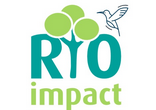
A more equitable and resilient future is possible only together
In a world organized around the project of growth, in which people are anxious about the future and do not trust collective action, the main explanations of unsustainability provide a disempowering and grim message.
An alternative explanation suggests that unsustainability results from people’s private efforts to address common problems. According to this view, the solution is to focus policy efforts, social discourse, and the media on the important and long-lasting aspects of people’s lives : their relations with others.
There are two prevailing explanations for unsustainability : first, important actions for sustainable development are postponed for the sake of urgent issues perceived in the present. Second, people don’t care for the well-being of future generations[1]. The implication is that if people prioritize the present over the future, then they have to be nudged or coerced to adopt sustainable behaviors. This strategy, so far, did not pay : according to the United Nations[2], worldwide we did not record any improvement in the three Sustainable Development Goals (SDGs) related to environmental protection. And this happened despite more and more people thinking that the environment should be a priority[3] !
It is worth noting that not all people are greedy : many are capable of making sacrifices for the benefit of others or the society as a whole. Additionally, awareness of environmental wreckage is widespread, especially among young generations . Then, why do people adopt unsustainable behaviors ? A less known explanation argues that when people anticipate a grim future and do not trust others, they may feel a sense of hopelessness and disempowerment, which can result in behaviors that prioritize personal or immediate benefits over long-term sustainability. Anxiety about the future combined with distrust in collective action, may transform people in formidable consumers.
For instance, if people anticipate a future with limited resources and lack trust in institutions to distribute them fairly, they may be more likely to engage in hoarding or neglect the environment to secure as much as they can for themselves and their dear ones. People may feel that they cannot rely on others to help them in times of uncertainty, so they take matters into their own hands and accumulate private resources. This requires time and energy that further reduce the possibility of cooperation. In other words, the (perceived) impossibility of collective action to address common problems stimulates private consumption and environmental degradation.
A good example is the recent increase in the demand for bunkers and shelter houses, also known as doomsday prepping. This trend can be seen as the result of people’s efforts to find private solutions to common problems (natural disasters, pandemics, or political instability) and their distrust in the possibility of adopting common solutions. Bunkers and shelter houses provide protection and security for individuals or small groups of people, but do not solve (actually, they accelerate) the initial (common) problem they are trying to avoid.
Sustainability is possible by expanding what really matters to lead good lives, such as social relations. The connections that people have with others, including family, friends, and community. Social relations promote well-being, and favor sustainable behaviors. They provide a sense of belonging and community, encouraging people to engage in pro-social behaviors such as volunteering, and participating in community activities. Social relations allow also to establish trust and cooperation, which foster a sense of shared responsibility and a willingness to work together to address common problems, such as environmental degradation.
Policies for social relations can have far-reaching benefits that do not have to come at the expenses of the economy. Prioritizing well-being, by promoting social relations, empowers people and enables collective action to address collective issues. A more equitable and resilient future for all is possible only together.
[1] A variant of this explanation maintains that people adopt unsustainable behaviors because they are not aware of the consequences of their actions and of the true state of the environment.
[2] https://unstats.un.org/sdgs/report/2021/progress-chart/ , pag. 4.
[3] https://www.cleanenergywire.org/factsheets/polls-reveal-citizens-support-energiewende
[4] https://www.thelancet.com/journals/lanplh/article/PIIS2542-5196(21)00278-3/fulltext
Francesco Sarracino
Extrait du dossier du mois « Génération ? Présente » !
















